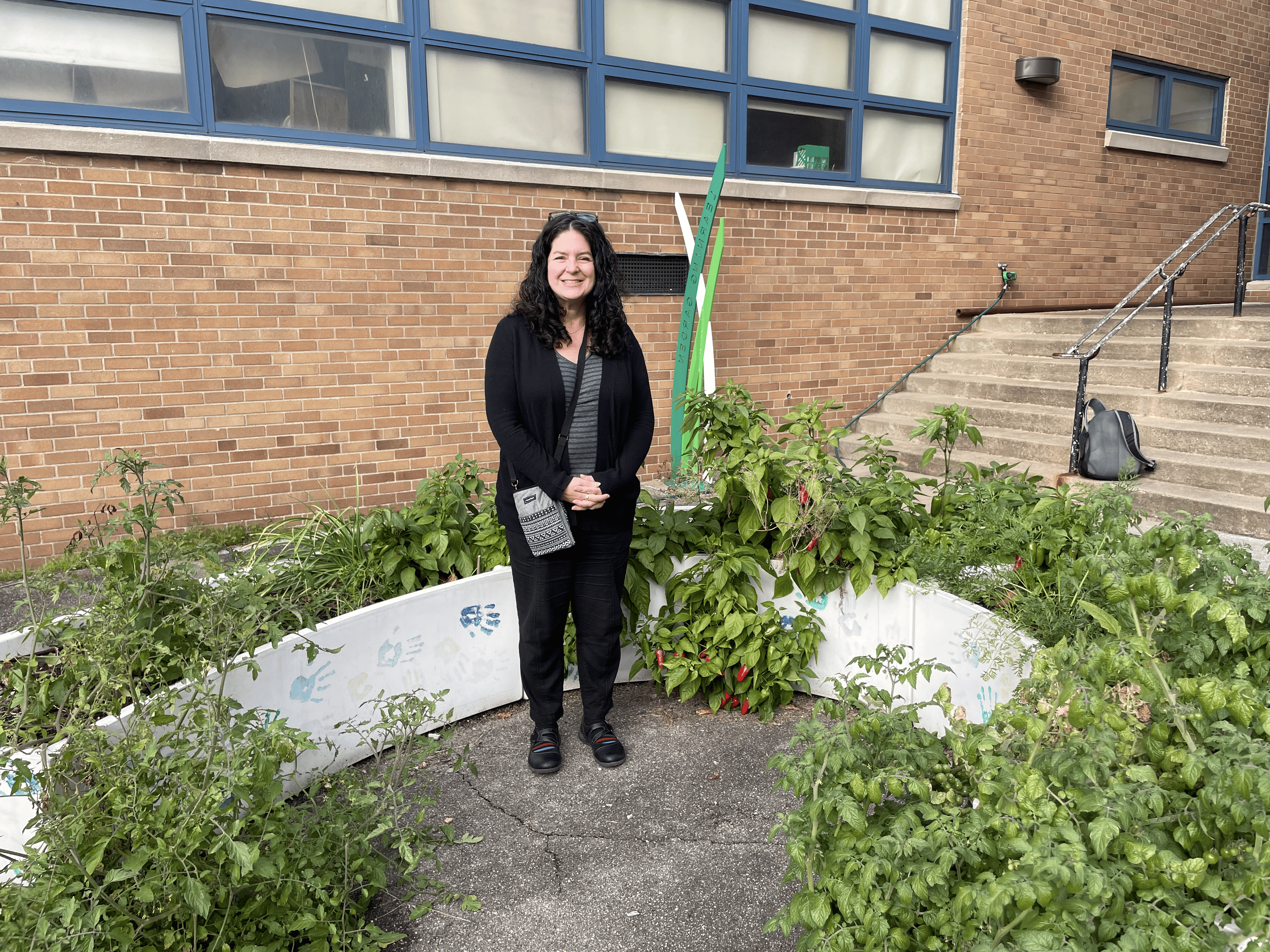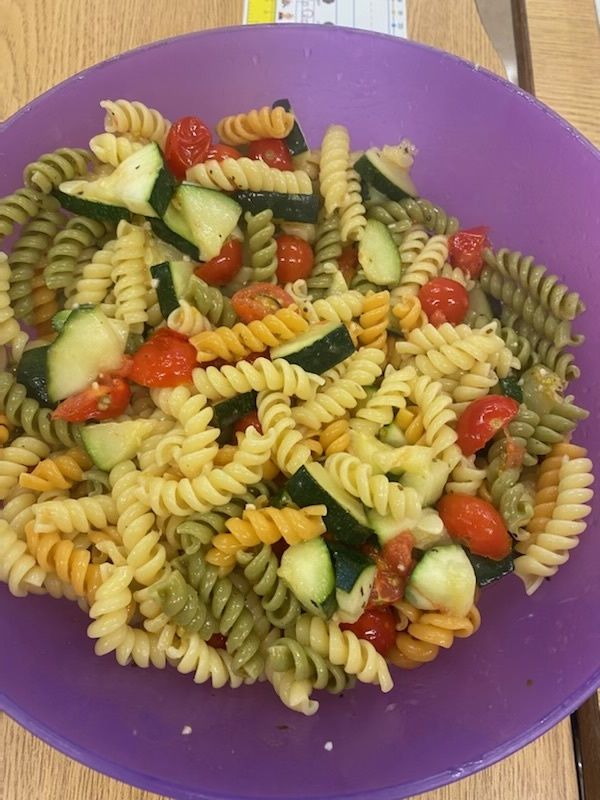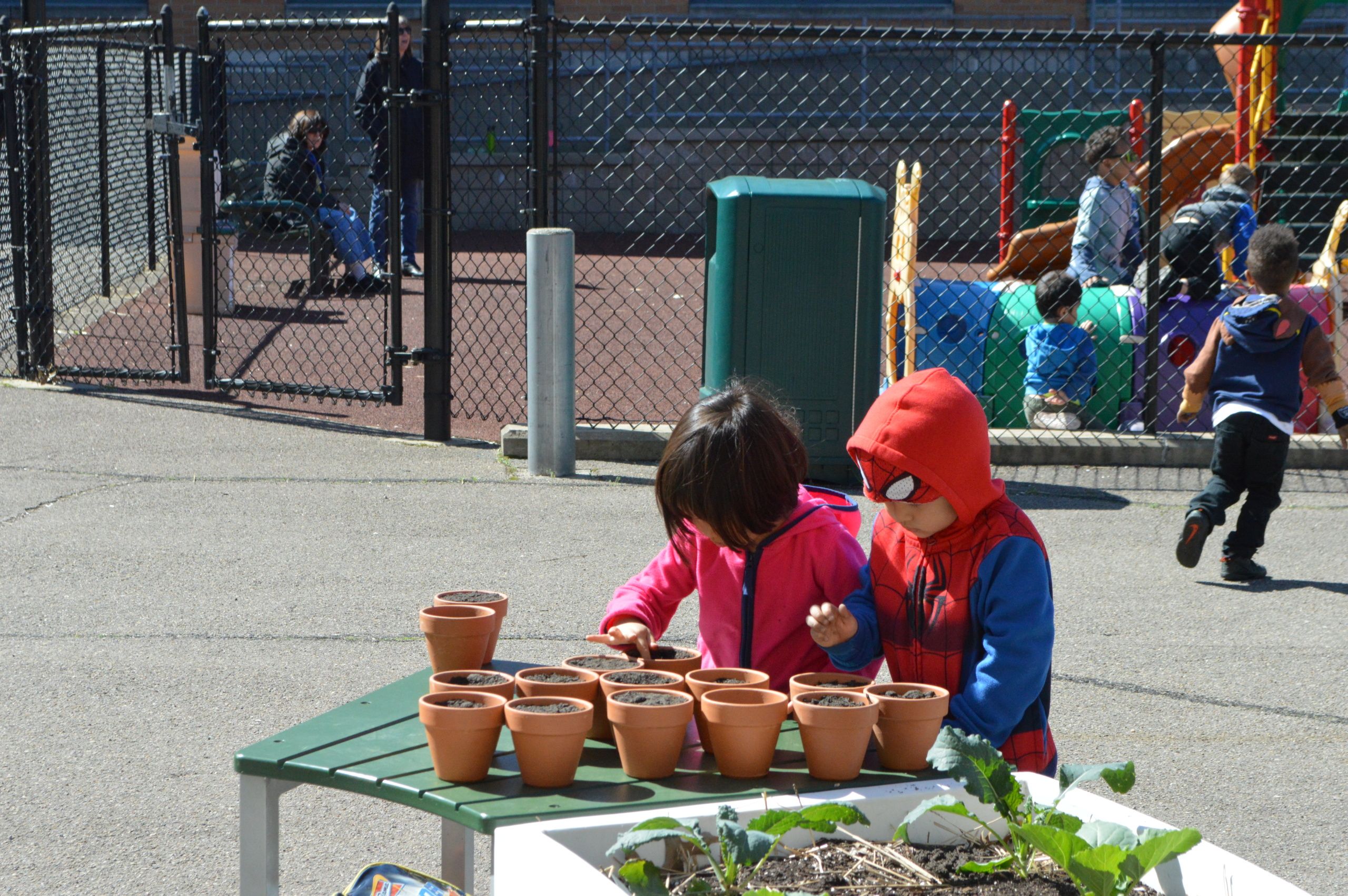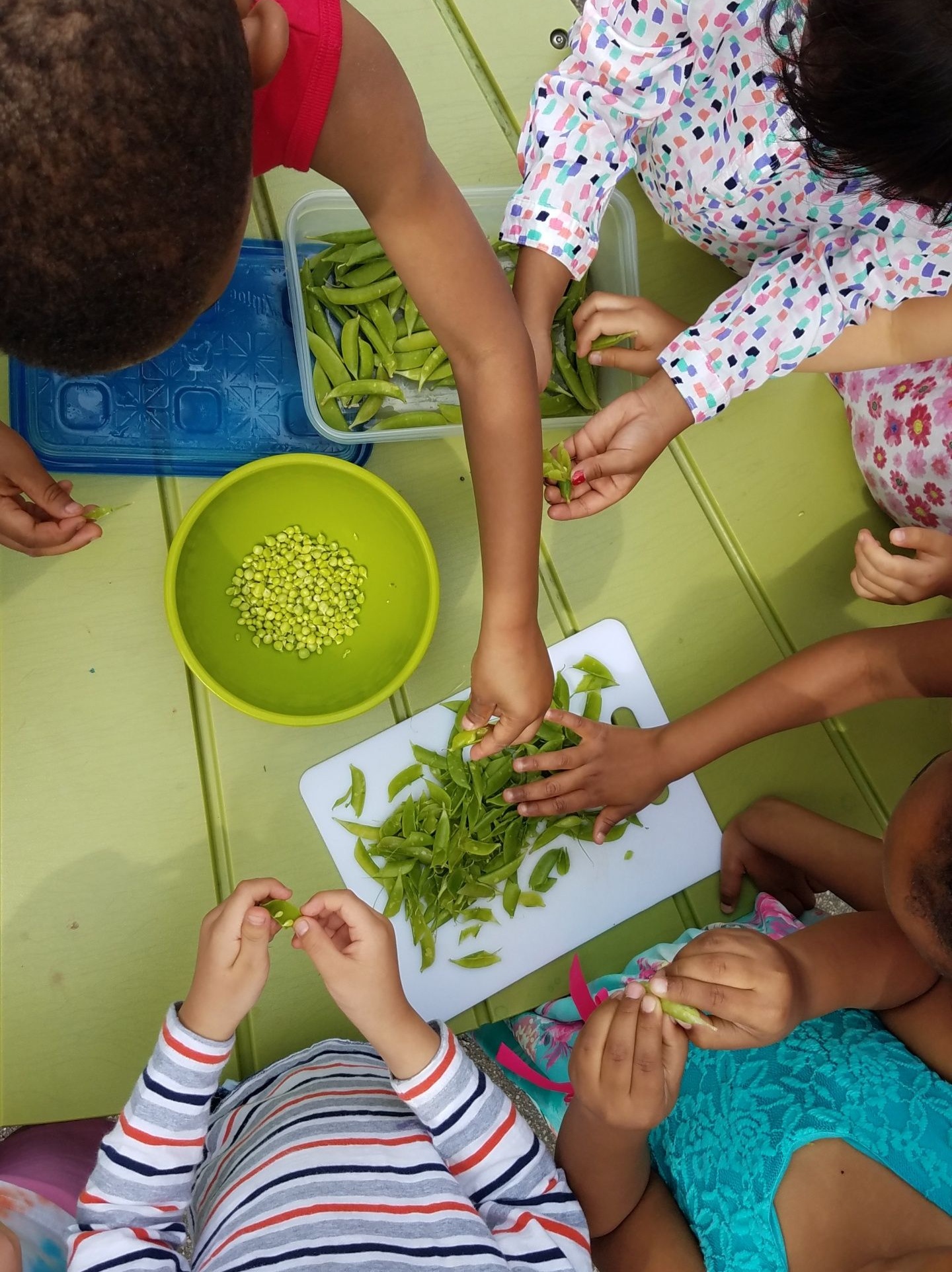This Grower’s Spotlight features Michele Scott-Blum, an Autistic Support K-2 educator at Minadeo Elementary who has been a champion of her school’s garden since its creation 9 years ago. She leads K-2 students through garden lessons and helps them try new foods through the variety of things they are growing in their school garden! Read on to learn about Michele and her experience with the school garden.

Grow Pittsburgh: Tell us a little bit about yourself.
Michele: I’ve been with the district for 25 years, and this year begins my 13th year at Minadeo. I teach Autistic Support, so all of my students have autism. I work with kindergarten, 1st and 2nd graders in my classroom. They stay with me all day, except for gym, music, art, library, lunch, and recess. I handle all of their academics and social skills, and I have two amazing paraprofessionals in my classroom to help.
GP: How did you get involved in your school’s garden?
Michele: Nine years ago I was asked by the principal if I wanted to do a grant for a school garden. It was something new that the district was doing. I filled out the application, and they said yes to us. And so Grow Pittsburgh came out and built these beautiful beds and I’ve been doing it ever since. I love bringing classes out. The kids just adore it.
GP: What impact does a school garden have on your students? What brings the most joy to your students when they are out in the garden?
Michele: Getting exposure to everything in the garden is amazing for the students! The first thing I do is ask them if they have a garden at home and what kinds of plants they’re growing. Then I take them to the herb garden, hand out some mint, and ask them to guess what it is. Most of the time, they figure out it’s mint, and we talk about what has mint in it. They mention things like mint candy, chocolate chip ice cream, and so on.
After that, I’ll show them basil or lemon verbena, which they always get excited about. This year, I also had ground cherry tomatoes, and I passed them around. Then I asked, “Do you want to pick some tomatoes?” and took the kids to harvest cherry tomatoes and peppers. When they returned to their classrooms, some teachers used the produce to make a salad or just gave the kids a taste.
I think what’s most important is that the kids plant the seeds, watch the plants grow, harvest them, and then eat what they’ve grown. They get to see the whole process from start to finish, which is something they don’t usually experience at home—at home, they only see the final product in the grocery store.

GP: What is your favorite thing to grow?
Michele: This year, growing ground cherry tomatoes was one of the coolest things I’ve done because the kids had so much fun with them. But my favorite is probably sweet potatoes. We harvest them around Halloween, and since they grow underground, the kids get to dig deep into the soil. They get so excited, pulling them out and showing off how big they are. Afterward, we made sweet potato pie, and the kids loved it—even if they initially thought, “Sweet potatoes, gross!” But then they try it and enjoy it.
GP: What are some projects that your students have done with the things you have grown in the garden?
Michele: We’ve made pesto using basil and tomatoes, and I brought in pasta to make a basil-tomato pasta dish. One year, we made zucchini muffins with the zucchini we grew and shared them with the second graders. They loved them, and when I told them, “You just ate a vegetable,” they were shocked!
GP: What was your proudest moment as a teacher?
Michele: The kids I work with, who have autism, are often picky eaters. So when they try something new and like it, it’s a huge success. One year, we made bruschetta with our tomatoes and garlic, which we had planted earlier. The kids loved it and were so proud. It’s so rewarding to see them excited about trying new foods.
This whole experience has brought me closer to the students too. Since I don’t teach general education, the kids in the school don’t always have me as a teacher, but they know me from the garden. It’s helped me build relationships with them, and they remember me because of the garden.
Many kids in the school know me as “the garden lady,” and they’re always asking, “Can we go to the garden?” or thanking me for the tomatoes they tasted. That kind of appreciation means the world to me.
GP: What challenges have you faced within your school gardening work?
Michele: One big challenge was when we had a couple of years where nothing grew. Fortunately, Grow Pittsburgh came to the rescue. They provided new soil and fertilizer, and things started growing again. I also had to learn how to rotate crops since they take nutrients from the soil. In the beginning, getting staff on board was a challenge, but now the teachers are eager to bring their classes out. By the first day of school, they’re already asking, “When are we going to the garden?”
GP: Do you have advice for fellow educators on how a school garden can be impactful in the learning of their students?
Michele: Start small. You don’t need an extravagant garden. A few crops are enough to get the kids interested. Even growing something simple like green beans in your classroom can excite them and show how easy it is to grow food. Don’t be afraid to try it—just getting started is the key.
GP: How has Grow Pittsburgh impacted your journey in becoming a Gardener?
Michele: I couldn’t have done this without Grow Pittsburgh! They’ve taught me so much. For instance, I didn’t know that if you don’t pick the tops off basil or mint, they’ll flower and lose nutrients. They’ve educated me about soil, planting seasons, and how different things grow. Thanks to them, I even started pickling my own cucumbers. I thought I was growing normal cucumbers, but they were small, so I learned how to pickle them. Now I don’t even buy pickles anymore—I make my own!
GP: Any closing thoughts?
Michele: I hope the garden program spreads to other schools. I think every school should have a garden, especially for special needs kids. My students love it. They get to weed, plant, harvest, and then they get to make recipes out of it. It’s something any kid can do, including special needs kids. It’s a hands-on, real-world experience that connects them to food in a meaningful way. It’s different from something you have to teach them, like how to add or subtract—it’s real-life skills that connect them to the food that they eat and it’s so valuable.



